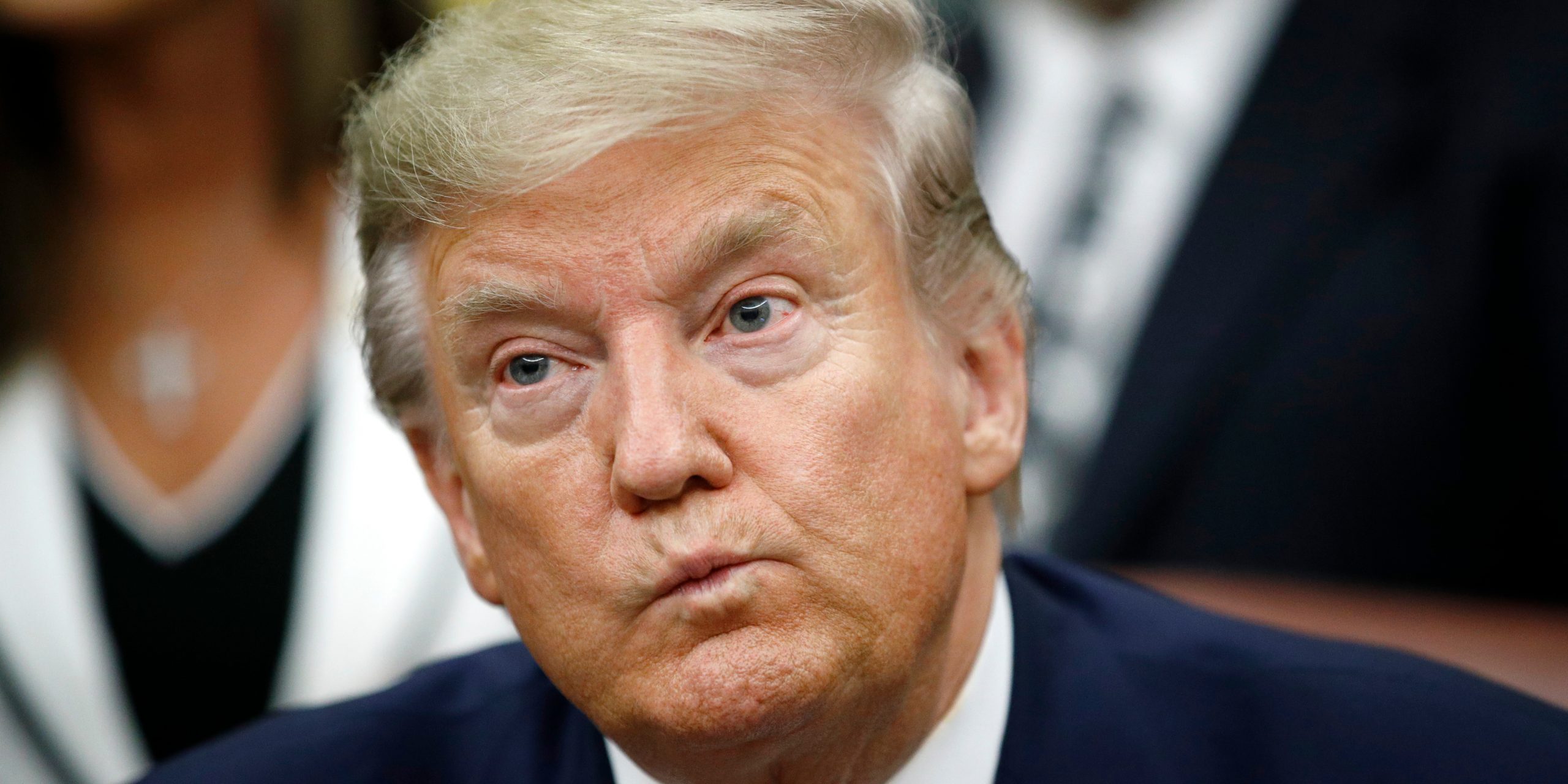- President Donald Trump’s business presented different occupancy rates for Trump Tower to lenders and tax authorities, according to documents obtained by ProPublica.
- The higher occupancy rates provided to lenders might have helped the president secure a loan in 2012, ProPublica said.
- Reports have outlined behavior by the president, including keeping “two sets of books,” that experts say points to financial fraud and tax fraud.
- But the president has denied any wrongdoing in his financial or business affairs.
- Visit Business Insider’s homepage for more stories.
President Donald Trump’s business presented different occupancy rates for Trump Tower in Manhattan to lenders and tax authorities, ProPublica reported on Wednesday.
The documents ProPublica acquired through a Freedom of Information Law request showed that the occupancy rate in information provided to lenders was higher than in information provided to tax authorities.
In 2012, Trump’s business told lenders that the occupancy rate in his flagship property in New York was nearly 99%, but in tax filings that same year the occupancy rate was given as 83%, according to ProPublica.
Susan Mancuso, an attorney who specializes in New York property tax, told the outlet that the discrepancy was a “very significant difference.” More than a dozen tax and property experts who reviewed the documents for ProPublica said they could find no good reason for the discrepancy.
In 2012, Trump secured a $100 million loan by refinancing his share of Trump Tower, something the figure provided to lenders might have helped secure, ProPublica said.
A representative for the Trump Organization told ProPublica that "comparing the various reports is comparing apples to oranges."

Trump's financial scandals
Trump has been at the center of several financial scandals. The New York Times reported last year that Trump used a series of dubious tax schemes to shield a $400 million inheritance from the IRS.
And in September, Mother Jones published an investigation that found that Trump might have fabricated a loan to avoid paying $50 million in income taxes.
But Trump has long maintained that he has committed no financial or tax crimes. He has said he can't release his tax returns because they are under audit, even though there is no rule to prevent him from doing so.
But the president may soon be forced to give his tax returns to investigators. On October 7, US District Judge Victor Marrero ordered Trump's accounting firm, Mazars USA, to turn over eight years of his tax returns to New York prosecutors investigating whether he violated state laws by fabricating business records.
Trump's lawyers filed a petition asking the Supreme Court to review the case, while prosecutors have urged the justices to deny the president's request.
Days later, the US Court of Appeals for the District of Columbia ordered Mazars to turn over the past eight years of his tax returns to the House Oversight and Reform Committee, saying lawmakers have the right to see the documents.
The Supreme Court issued a temporary stay on Monday blocking the appellate court's ruling. The justices are likely to consider the two cases alongside each other because both deal with Trump's efforts to block his accounting firm from complying with subpoenas after two separate lower court rulings.
IRS whistleblower could be key to the public seeing Trump's tax returns
But the public may still get a window into the president's closely held financial documents thanks to an employee at the IRS who recently blew the whistle on "inappropriate efforts to influence" the agency's audit of Trump's tax returns.
According to The Washington Post, the person accused of trying to interfere with the audit is a political appointee at the Treasury Department.
There aren't many government officials who have access to the president's and vice president's tax documents, Jeffrey Cramer, a former federal prosecutor who spent 12 years at the Justice Department, told Insider in an earlier interview.
"The president's and vice president's tax returns are kept in a top-secret vault," Cramer said. "It's code-word-protected, the whole nine yards, and not just anyone can get in there. There are very few people - the head of the Treasury, the head of the IRS - who have access."
Trump was also accused of altering his tax and loan records by Michael Cohen, his longtime former lawyer who is serving a three-year federal prison sentence for campaign-finance violations and tax evasion.
In particular, Cohen accused Trump of inflating and deflating his loan and tax documents, respectively - an allegation that appears to bear similarities to what ProPublica reported this week and in October.
Kevin Riordan, a financing expert and real-estate professor at Montclair State University who reviewed ProPublica's obtained tax records, told the news outlet last month that "it really feels like there's two sets of books," one for lenders and one for tax investigators.
"It's hard to argue numbers," Riordan said. "That's black and white."
- Read more:
- Think Trump will get impeached? Gambling sites say the odds are in your favor
- Trump could be impeached and removed from office but still win reelection in 2020
- Over half of the House of Representatives support the impeachment inquiry against Trump - see all of them here
- Everything you need to know about Trump's impeachment process: What's happened, who the players are, and what comes next
